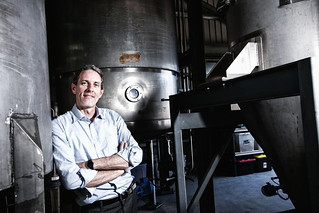
A research partnership between QUT and a US National Laboratory aims to reduce greenhouse gas emissions and develop new ways of creating bio-energy from plant material.
The biotechnology research partnership will bring together leading US and Australian researchers and was formalised when Australia’s QUT (Queensland University of Technology) and Pacific Northwest National Laboratory (PNNL) signed a Memorandum of Understanding.
The memorandum of understanding was signed by PNNL Director of Strategic Partnerships, Doug Ray and QUT's Deputy Vice-Chancellor for Research and Commercialisation, Professor Arun Sharma. PNNL, managed by Batelle Memorial Institute’s Pacific Northwest Division for the US Department of Energy’s Office of Science, is one of the US National Laboratories and has an annual budget of almost $1 billion and employs 4400 staff.
PNNL, managed by Batelle Memorial Institute’s Pacific Northwest Division for the US Department of Energy’s Office of Science, is one of the US National Laboratories and has an annual budget of almost $1 billion and employs 4400 staff.
The Academic and Research Cooperation Agreement establishes
a relationship between QUT and PNNL aimed at enhancing the quality and impact of research conducted by the two institutions.
QUT Vice-Chancellor Professor Peter Coaldrake said the agreement represented a good match for QUT and PNNL.
“It’s a very good fit because we each bring complementary skills, technology and shared understandings to enhance research and outcomes in the areas of bioenergy, biotechnology and biological systems,” Professor Coaldrake said.
“Our projects aim to reduce carbon emissions and provide low-carbon energy solutions to improve regional economic development in both Australia and the US.
“QUT brings expertise in plant biotechnology and bioprocess engineering in its Institute for Future Environments and Centre for Tropical Crops and Biocommodities.
“The University has significant experience in converting crops like sugarcane and sweet sorghum into valuable products which include plastics, chemicals and fuels which are developed at QUT’s Mackay Renewable Biocommodities Pilot Plant.”
PNNL brings expertise in systems biology, including fungal, algal and microbial genomics, computational biology and an array of cutting-edge research that explores biological components to understand how organisms work, such as genomics for genes, and proteomics for proteins.
Both QUT and PNNL work in advanced thermochemical conversion of biomass to create biofuels, plant-derived chemicals and other bioproducts.
Professor Coaldrake said planned cooperative efforts include:
- Joint PNNL-QUT appointment of Professor Alex Beliaev
- Staff and student exchange
- Collaborative research
- Academic exchange
At QUT the project will be led by Associate Professor Ian O'Hara (pictured above).
Media contact: Niki Widdowson or Rose Trapnell, QUT media, 07 3138 2361 or 0407 585 901 rose.trapnell@qut.edu.au


